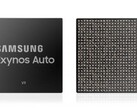It is five years since A/B seamless system updates for Android devices arrive, but Samsung continues to ignore Google in this regard. In summary, A/B system updates maintain a bootable system while a device is applying an over-the-air (OTA) update. The feature also allows devices to finish updates in the background, rather than staring at a bootloader screen for many minutes.
Originally, it was believed that Google had required OEMs to integrate A/B system updates as of Android 11, but the Galaxy S21 series demonstrates otherwise. According to the likes of Max Weinbach, One UI 3.0 and newer does not contain the code necessary for A/B system updates.
The latest Android Compatibility Definition Document does not require OEMs to integrate A/B partitions, either. Instead, it merely emphasises that devices should support it.
A/B system updates should benefit consumers, especially when OS updates brick devices, as has happened with the Xiaomi Mi A3. However, having A and B partitions requires more storage space than having a single partition. So, not adopting A/B partitions gives people more free storage, in Samsung's defence. The South Korean company could have just continued to include microSD card readers in the Galaxy S series though, so we have little sympathy for Samsung on this one.














